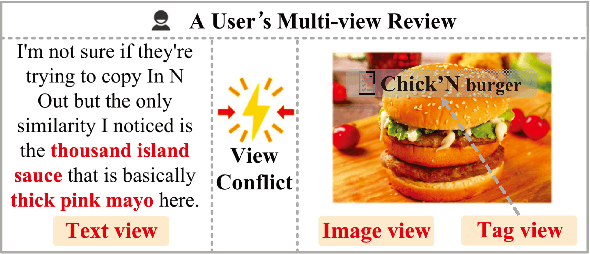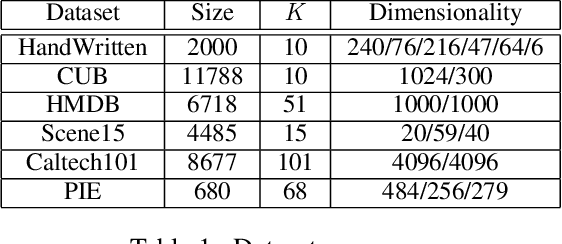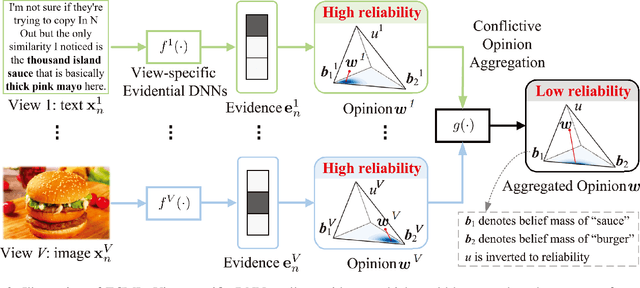Jiajun Si
Reliable Conflictive Multi-View Learning
Feb 28, 2024



Abstract:Multi-view learning aims to combine multiple features to achieve more comprehensive descriptions of data. Most previous works assume that multiple views are strictly aligned. However, real-world multi-view data may contain low-quality conflictive instances, which show conflictive information in different views. Previous methods for this problem mainly focus on eliminating the conflictive data instances by removing them or replacing conflictive views. Nevertheless, real-world applications usually require making decisions for conflictive instances rather than only eliminating them. To solve this, we point out a new Reliable Conflictive Multi-view Learning (RCML) problem, which requires the model to provide decision results and attached reliabilities for conflictive multi-view data. We develop an Evidential Conflictive Multi-view Learning (ECML) method for this problem. ECML first learns view-specific evidence, which could be termed as the amount of support to each category collected from data. Then, we can construct view-specific opinions consisting of decision results and reliability. In the multi-view fusion stage, we propose a conflictive opinion aggregation strategy and theoretically prove this strategy can exactly model the relation of multi-view common and view-specific reliabilities. Experiments performed on 6 datasets verify the effectiveness of ECML.
 Add to Chrome
Add to Chrome Add to Firefox
Add to Firefox Add to Edge
Add to Edge